The world would be a better place if, instead of lashing out at others, people would focus on solving their self-esteem issues. Unfortunately, real life means some folks are overly entitled, toxic, and lack self-awareness.
Case in point, u/NerdyBrooklynGirl, who recently lost weight, vented to the AITA online community about a passive-aggressive coworker of hers. According to the author, her colleague raged at her when she offered her some of her fashionable clothes. The woman was accused of losing weight just to make her coworker “the fattest person in the office.” Keep reading for the full story.
It is a major challenge to lose weight for health reasons. Though you might be proud of your success, some people around you might be envious

Image credits: voronaman111 (not the actual photo)
One charitable woman wanted to give away some of her old clothes. However, her toxic colleague turned it into a massive drama
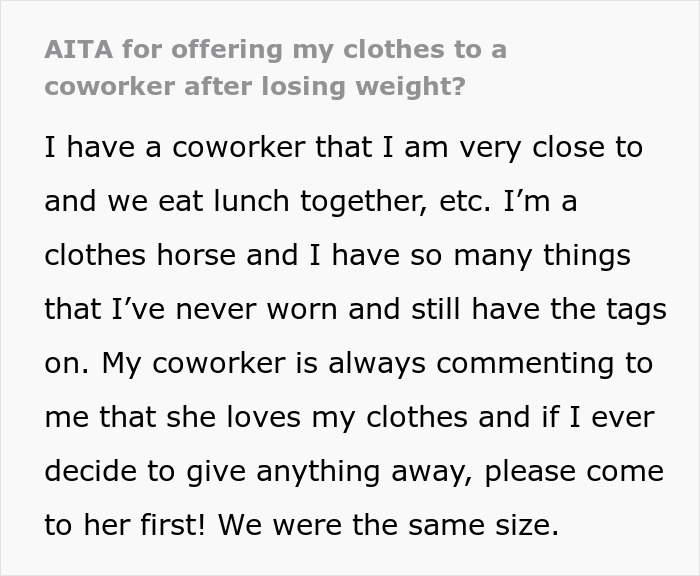


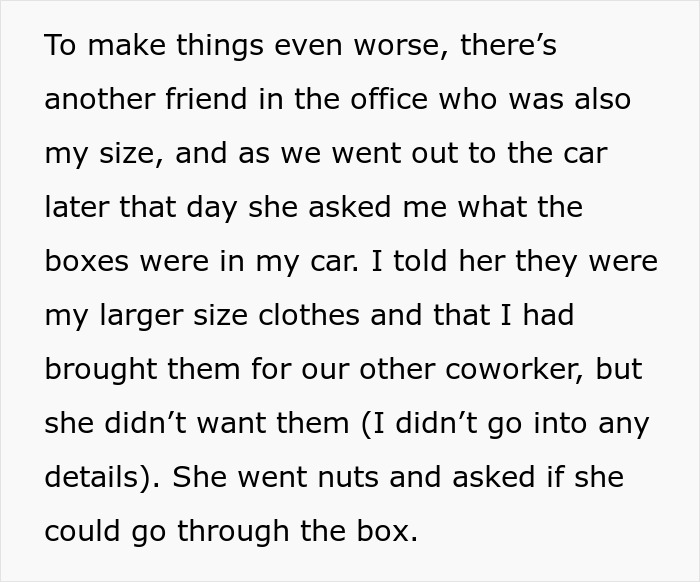


Image credits: GSR-PhotoStudio (not the actual photo)
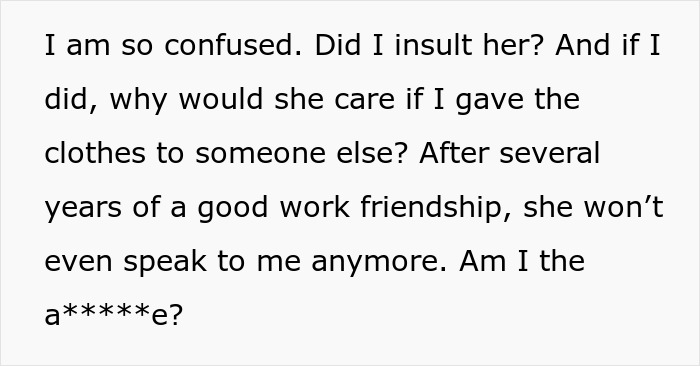
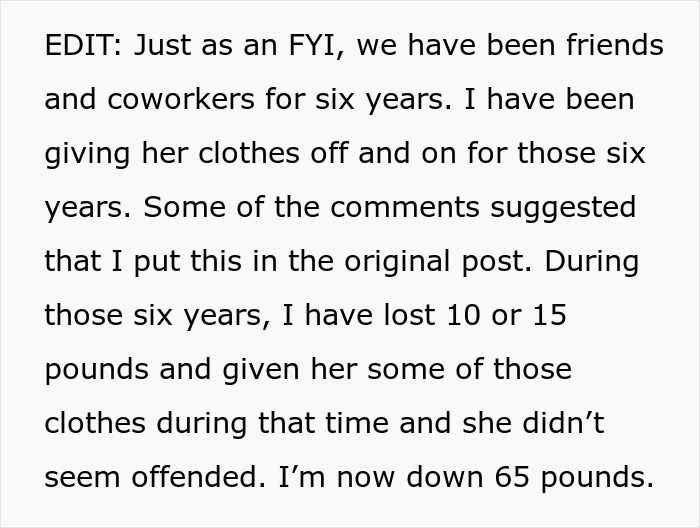

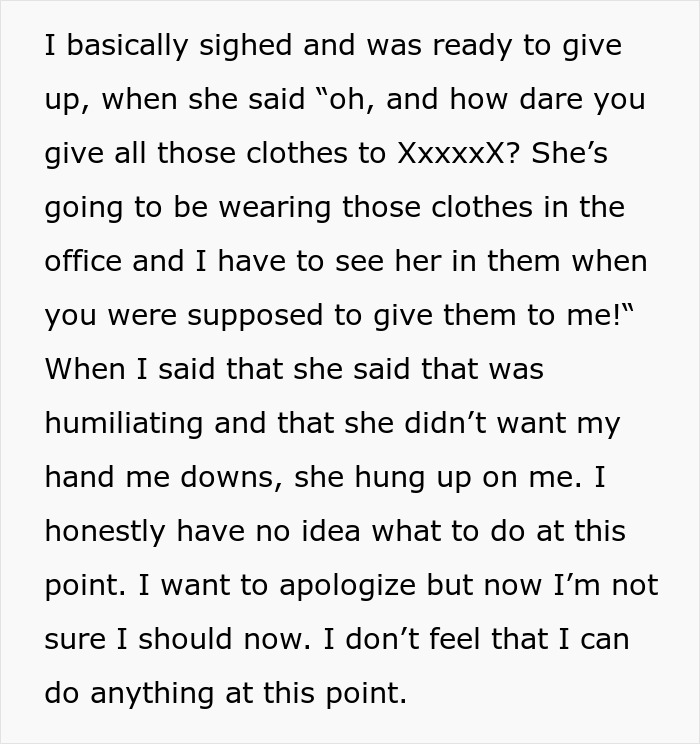
Image credits: NerdyBrooklynGirl
Genuine friends will celebrate your successes with you. False friends get envious and try to put you down to feel better about themselves
The sad reality is that good intentions, charity, kindness, and generosity won’t be appreciated by everyone. Some individuals are more concerned with keeping up appearances or maintaining a grip on their fragile egos.
Or they’re incredibly envious of your success. So, they’ll try to put you down for doing something nice for them or someone else.
You can quickly tell whether someone is a good friend of yours or just pretends to be by how they react to your victories and defeats. Losing weight for health reasons, with a doctor’s advice, is a huge endeavour. It’s challenging because it requires you to overhaul your lifestyle.
A good friend would be happy for you that you’re on your way to solving your health issues. On the flip side, someone who feels envious of your progress and feels like you don’t deserve your success isn’t a true friend.
In a similar vein, good friends will support you when times are tough and you’re down on your luck. False friends, on the other hand, will be glad that you failed.
It might be best to reconsider your relationship with people who want what’s worst for you… or those who feel like you can’t succeed when they don’t.

Image credits: Melanie Stander (not the actual photo)
Most employees, unfortunately, completely ignore work problems, making them grow
Now, in your private life, you would either talk to your friend directly about these issues or you’d simply spend less time with them. Things are slightly more complicated at work. You can’t exactly avoid that person if they’re in the same department or if you have to collaborate on a bunch of tasks.
So, you’ll have to be more diplomatic and delicate when tackling everything. You don’t want to come off as judgmental or angry because you don’t want this drama to spill over into the rest of the company. You may even want a manager or member of HR to step in to mediate the conflict.
However, in reality, most people actually avoid workplace conflicts and ignore problems. This, according to the Harvard Business School, leads to resentment, unsuccessful initiatives, and missed deadlines.
As per data from coaching and training firm Bravely, a whopping 53% of workers deal with toxic situations at work by, well, not dealing with them at all. They avoid having those tough conversations.
The result is that United States businesses lose $359 billion per year. This comes out to organizations losing $7,500 and more than 7 workdays per year on average.

Image credits: LinkedIn Sales Solutions (not the actual photo)
Workplace conflicts are tough(er) to manage because you have to focus on the long-term nature of these relationships
There are five main strategies for conflict resolution, according to the Thomas-Kilmann Conflict Model:
The last three strategies (accommodating, compromising, and collaborating) are best suited for dealing with workplace conflicts because they focus on long-lasting relationships, while the first two (avoiding and competing) only work when you don’t care about preserving the underlying relationships.
What are your thoughts, Pandas? Do you think the woman was wrong to offer her clothes to her colleague, or do you think she was simply being kind? How do you handle conflicts at work? Who is the most entitled, passive-aggressive coworker you’ve ever had to deal with in the workplace? Let us know what you think.

Image credits: Christina @ wocintechchat.com (not the actual photo)
The internet rushed to support the confused woman. They shared their perspective on the argument at work
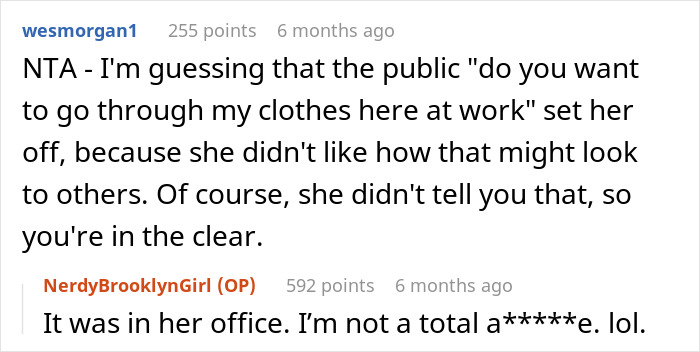
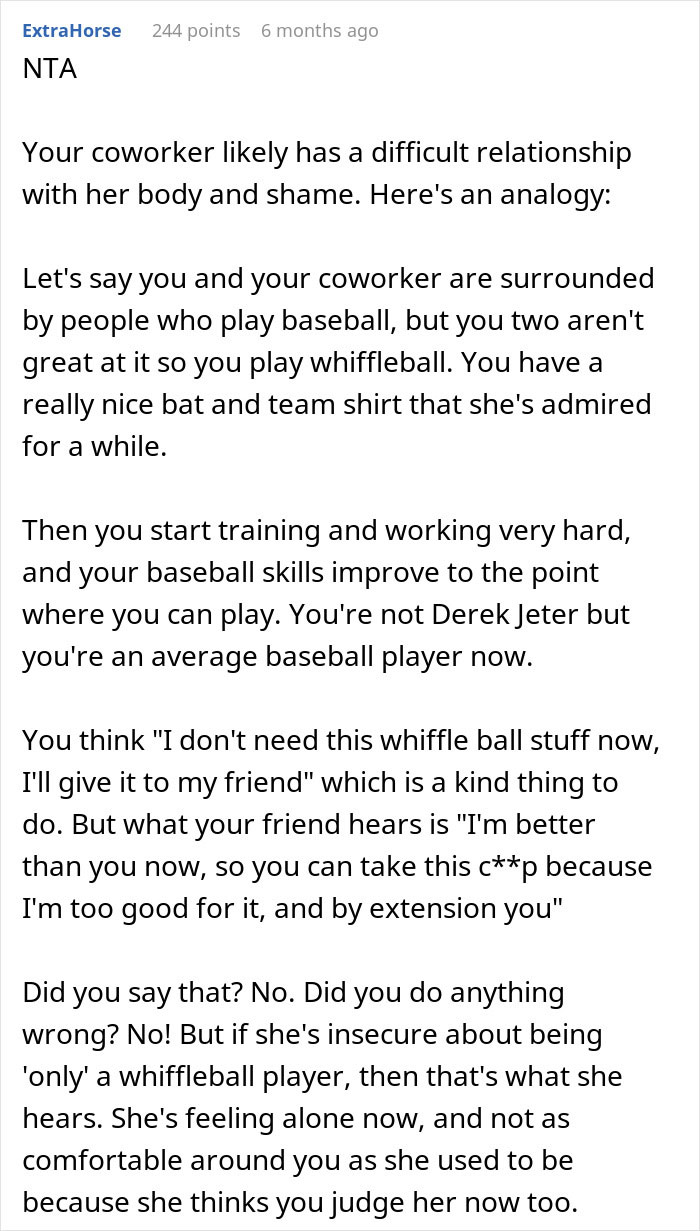

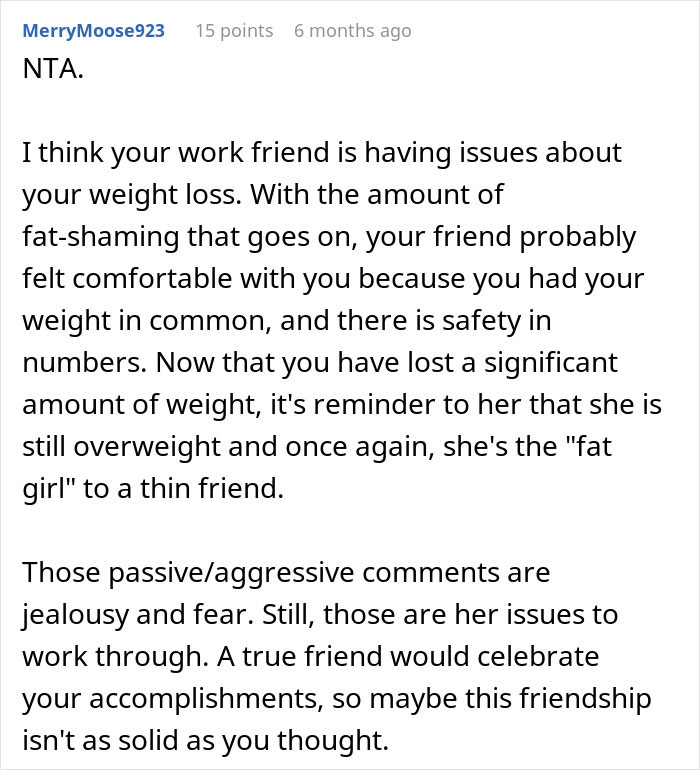
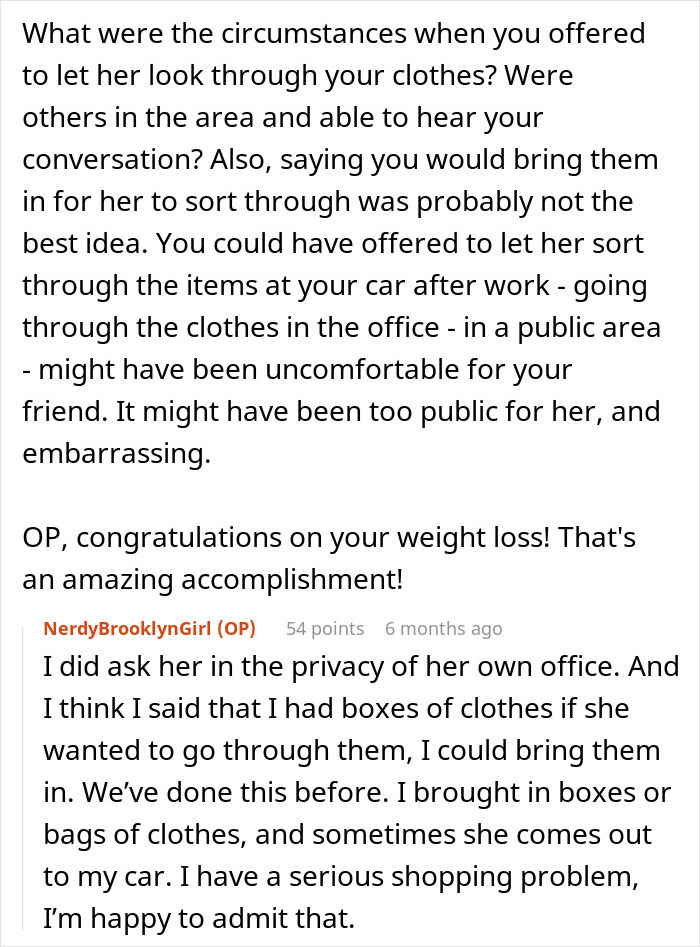
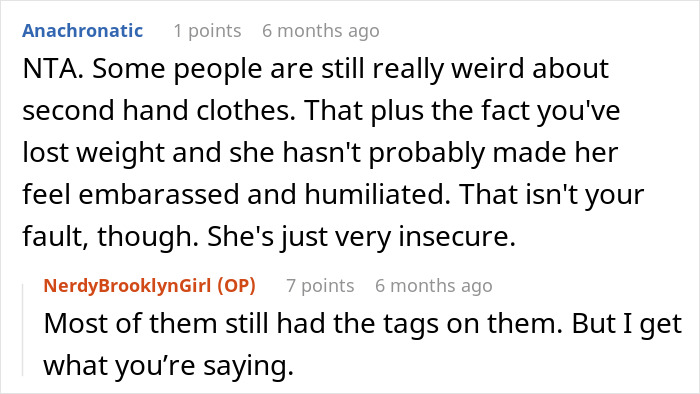
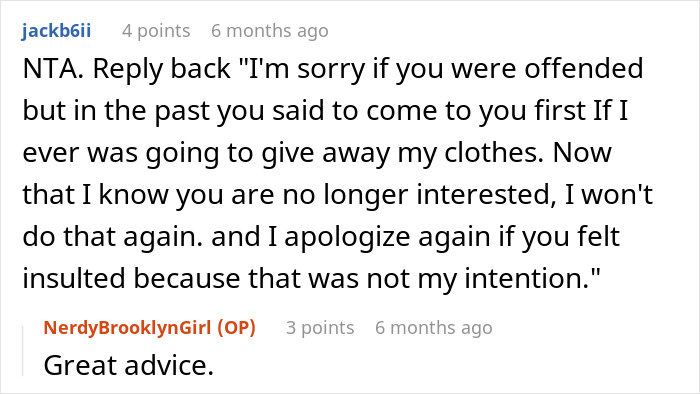
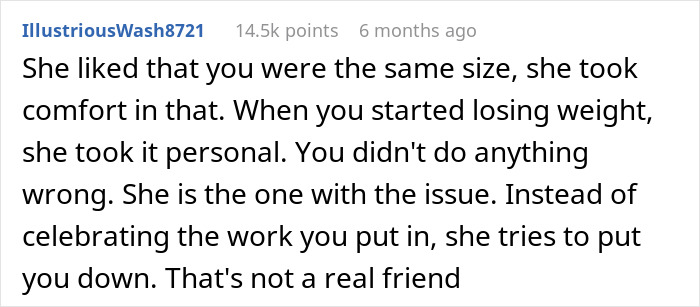
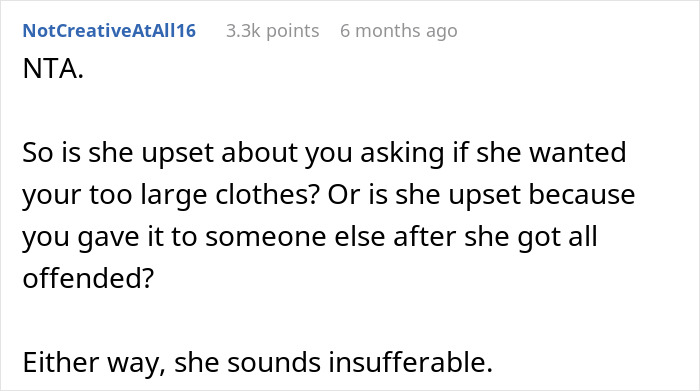
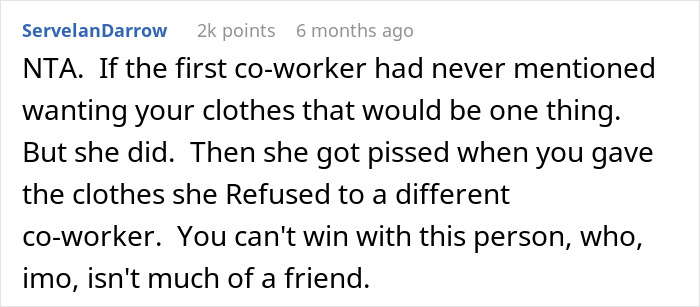
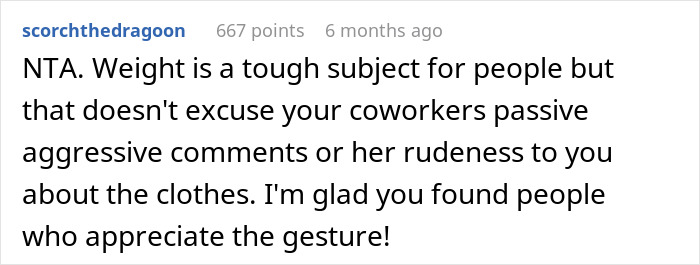
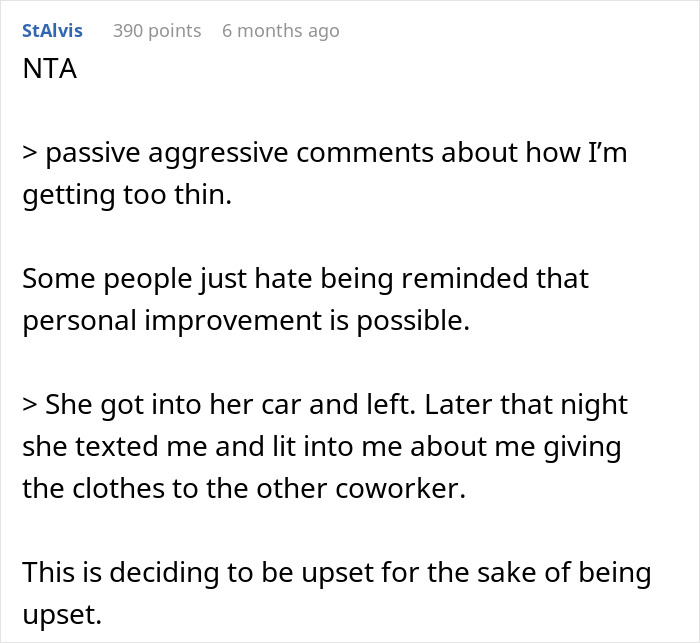
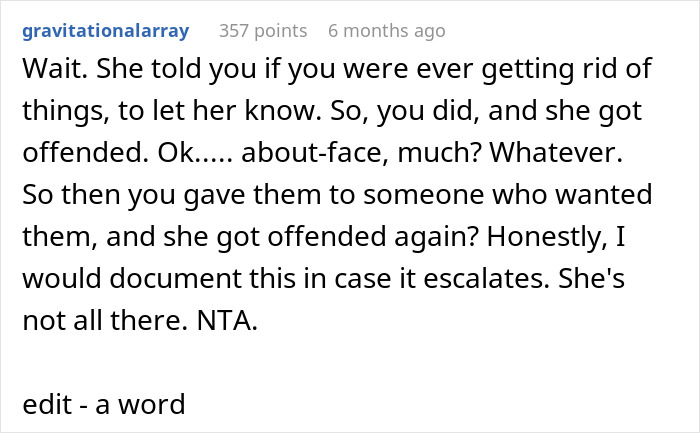
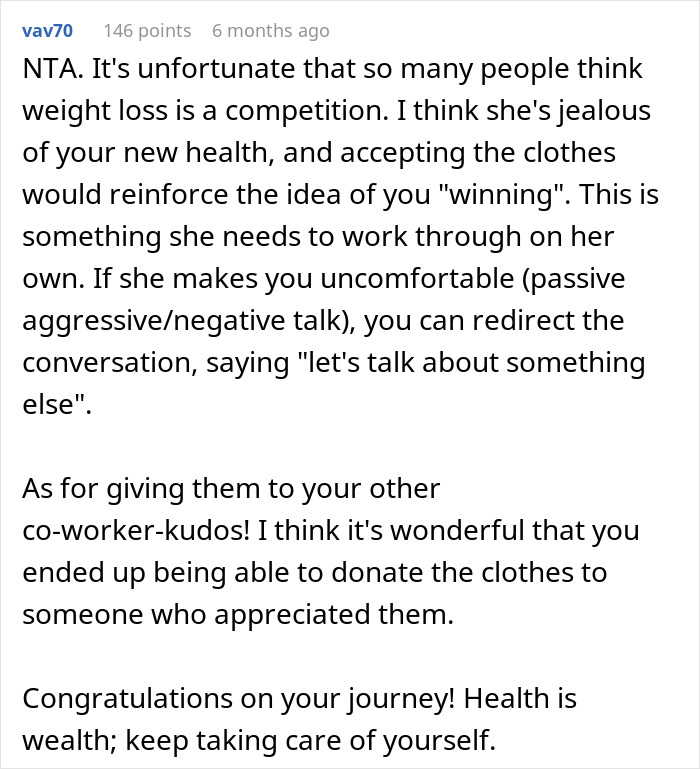
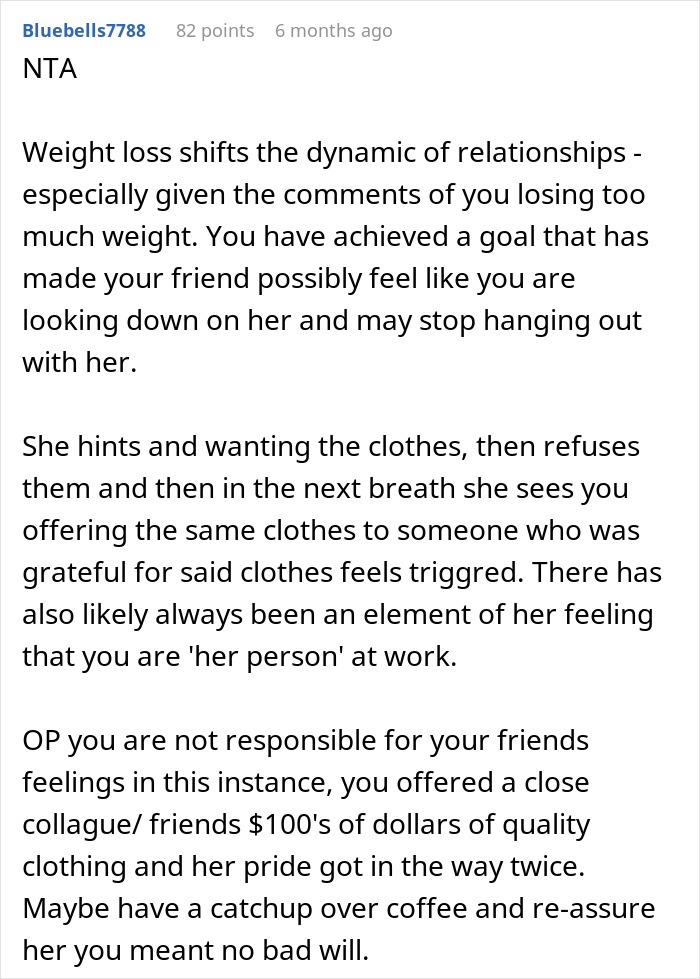
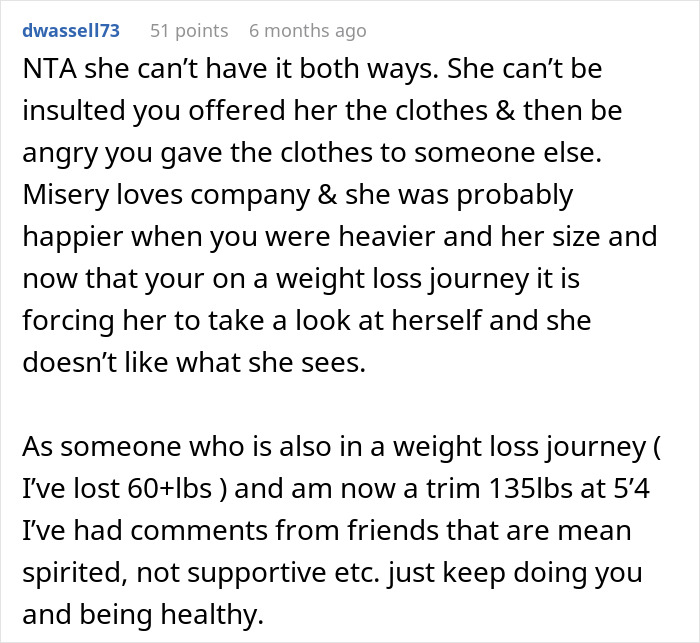

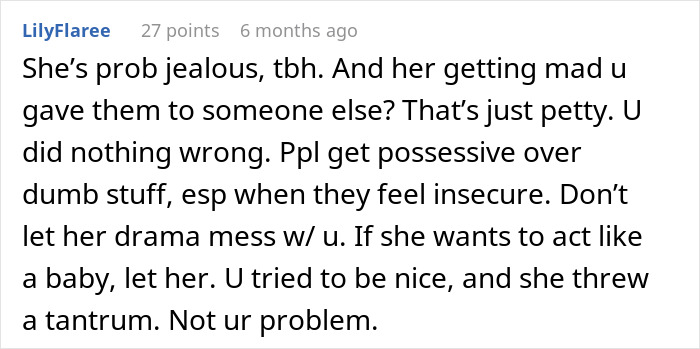

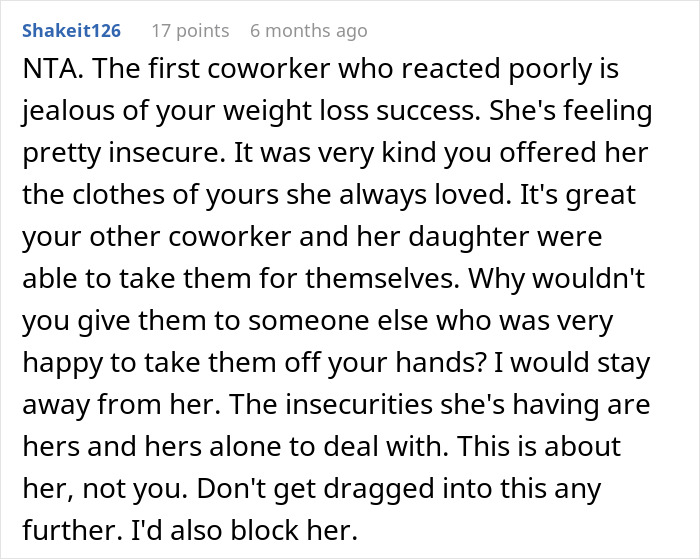
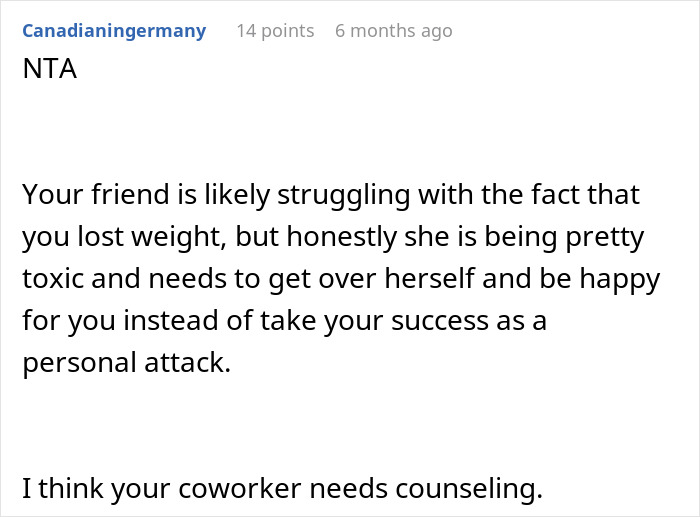
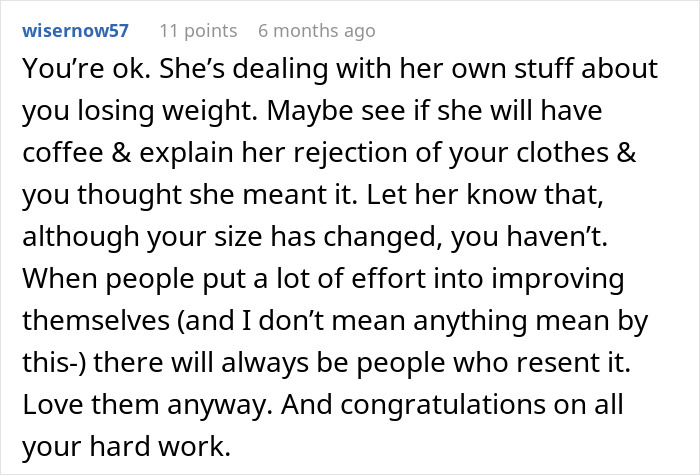

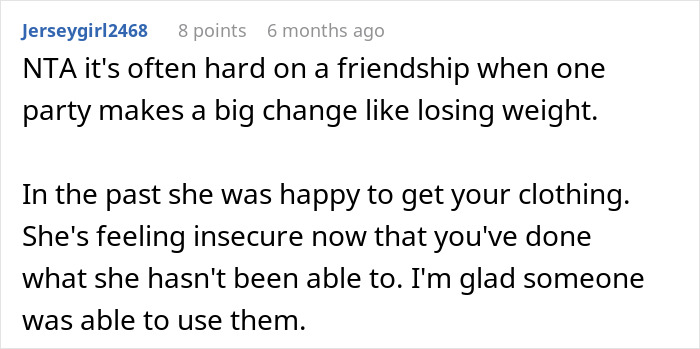
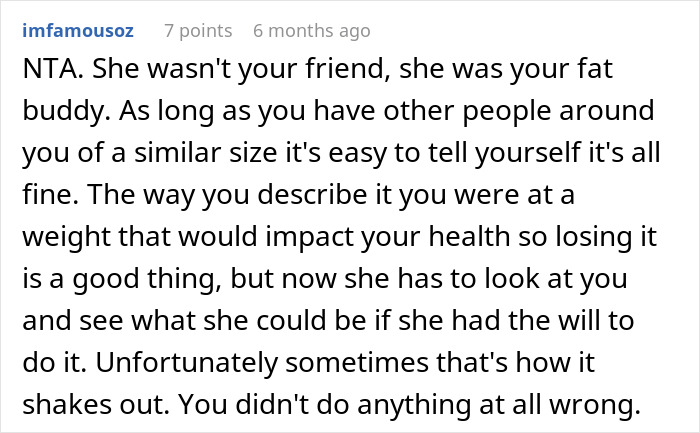
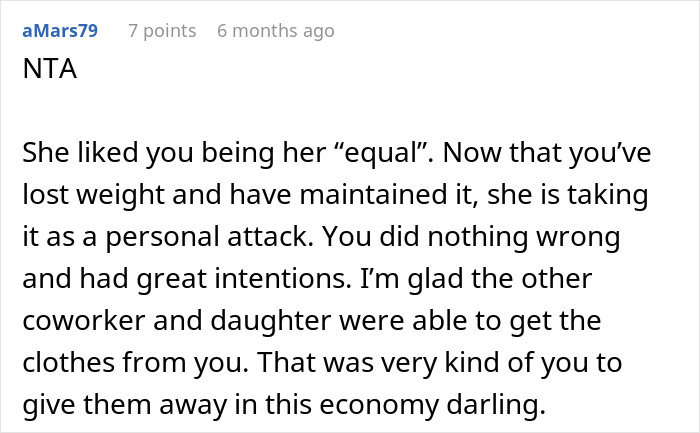

Some folks shared their personal experiences dealing with similar situations
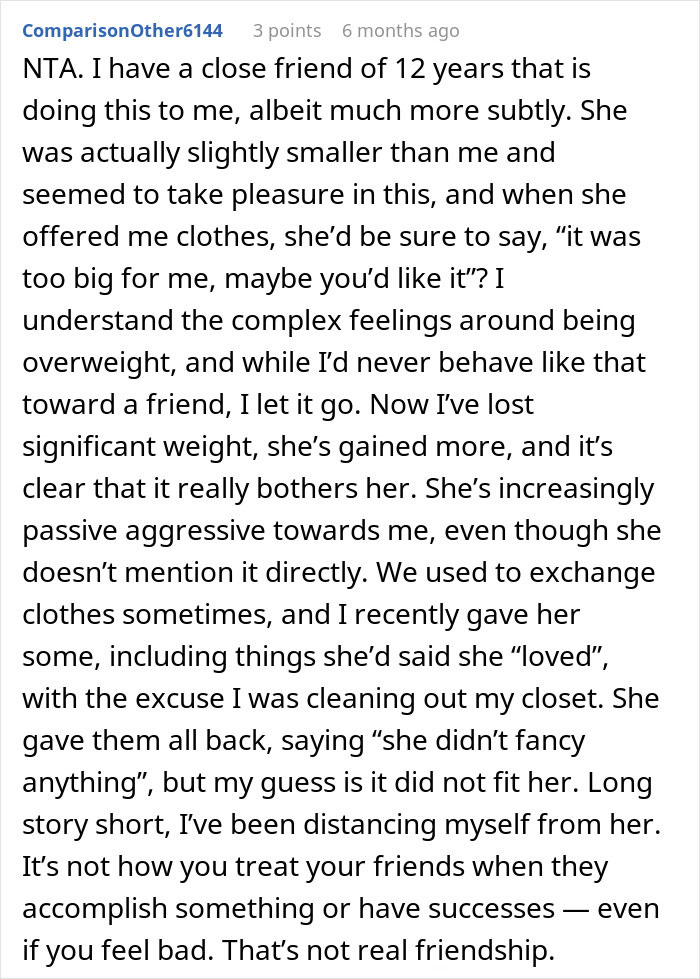
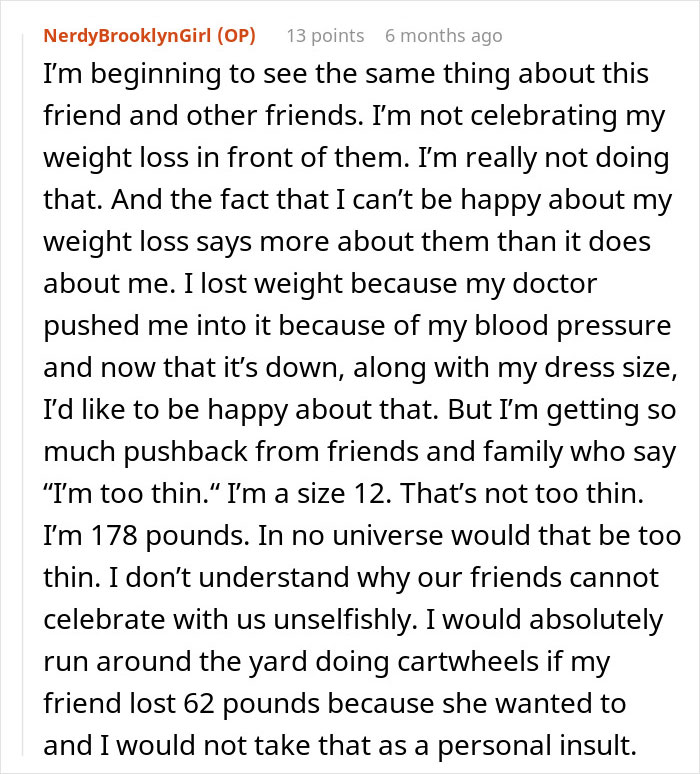

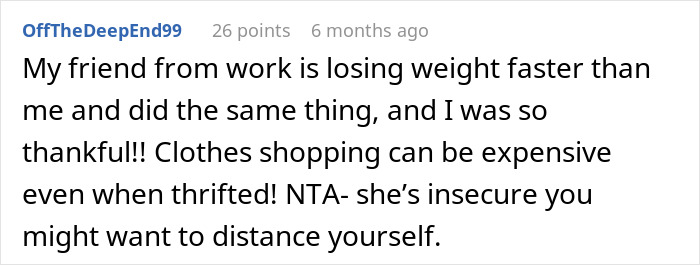

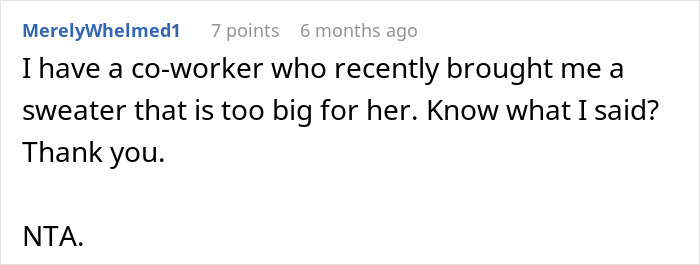
 Follow Us
Follow Us




